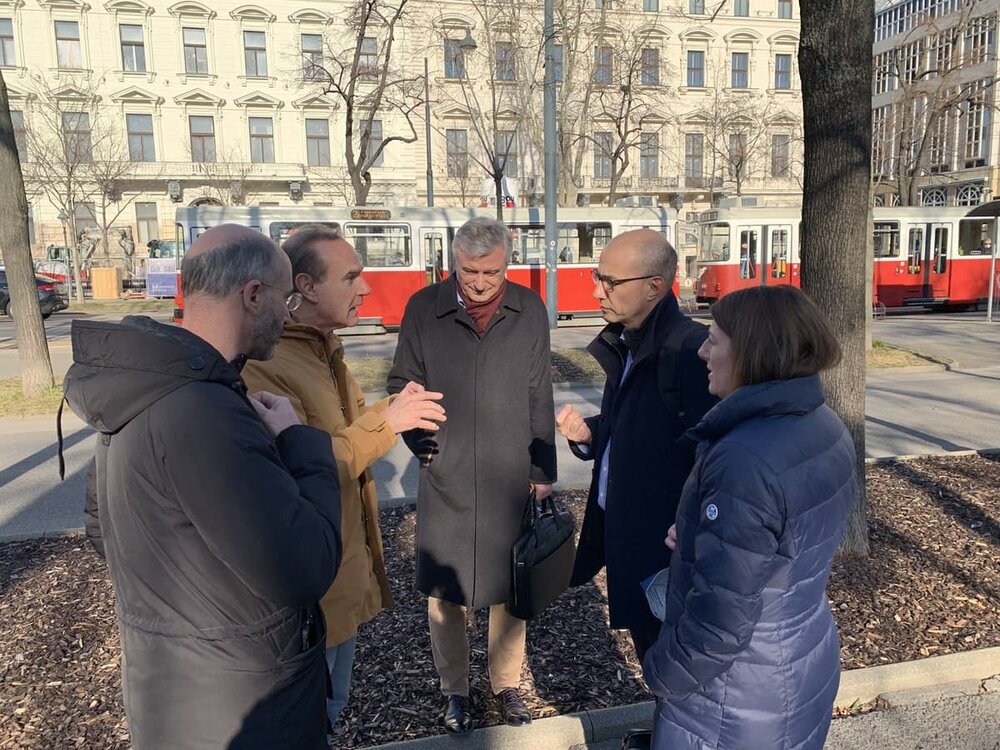U.S. responsible for slow pace of talks

TEHRAN – After a period of short-lived optimism on the possibility of a deal being made in the Vienna talks, the odds of such a deal again become slim as the West started to put the blame on Iran for the lack of swift conclusion.
Just a week ago, the talks in Vienna over reviving the 2015 nuclear deal, officially known as the Joint Comprehensive Plan of Action (JCPOA), was reportedly at the final stage and Iran announced that the deal now is dependent on the West making a political decision regarding a number of issues.
In the meantime, the heads of negotiations returned to capitals for more consultations. The short break was requested by the chief negotiators of the three European countries that are party to the JCPOA – France, Germany, and the UK, collectively known as the E3.
Before the hiatus, Iran said it had already made all the decisions needed to push forward the talks and now it’s up to the West to make political decisions on the talks. That’s why when Iran’s chief negotiator, Ali Bagheri Kani, returned to Tehran, Iranian media said the break will unlikely bring about any change in Iran’s position toward the talks.
Of course, during his stay in Tehran, Bagheri Kani made intensive consultations. And Iran’s Supreme National Security Council held an important meeting on the Vienna talks to take stock of the state of the talks. The Council underlined the need to meet Iran’s legal and logical demands which are part of the country’s red lines, according to Nour News, a website close to the Council.
Bagheri Kani returned to Vienna on Monday. The E3 negotiators started to toughen their tone even before Bagheri arrived in the Austrian capital. French political director Philippe Errera wrote on Twitter on February 27 that “Tehran is playing with fire.” The French diplomat then cited a French expression to the effect that one must know the point at which one has gone too far.
This stark warning was issued even before Bagheri Kani returned to Vienna, meaning that the E3 negotiators are setting the stage for turning up the heat on Iran in order to push it into signing a deal soon.
But press reports in Iran and beyond suggest that Tehran is unlikely to sign a deal unless its demands are met. Nour News said there are four issues that are delaying the signing of a deal: First, the West’s desire to keep in place the sanctions structure through not providing reliable guarantees. Second, keeping a large number of sanctions within the red list. Third, continuing restrictive pressures that go beyond the terms of the JCPOA through keeping “political files of the safeguards” open.
Fourth, keeping some Iranian institutions under sanctions using other authorities. Nour News said sanctions on these institutions will directly or indirectly create serious problems for Iran in benefiting the economic benefits of the JCPOA.
The website said Iran keeps insisting on the necessity of removing sanctions on these institutions but the United States is not willing to back down on the sanctions.
Whether the talks would result in a deal in the current round remains to be seen. The gap of differences between Iran and the West is widening with some reports even suggesting that the current round will not end in a deal. The Lebanese newspaper Al Akhbar said on Tuesday that the EU coordinator of the talks, Enrique Mora, has submitted a draft to Iran but Tehran “is not scheduled to announce its final approval at this stage on the draft submitted by Mora.”
According to the newspaper, the negotiations are likely to continue for a few more days or a few weeks, before it is announced whether they will succeed or fail.
Leave a Comment